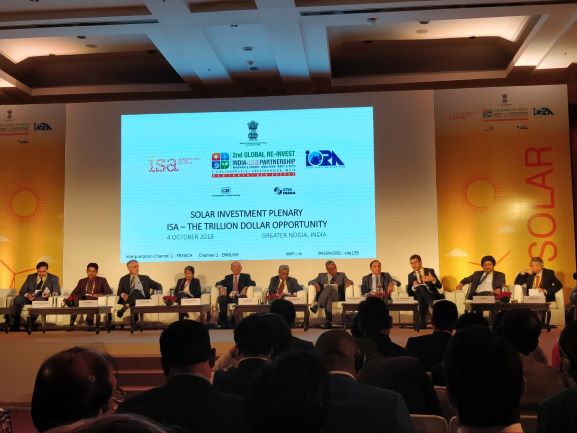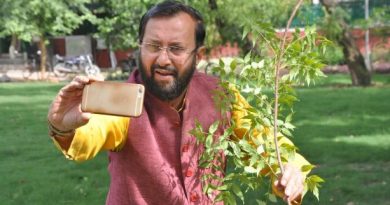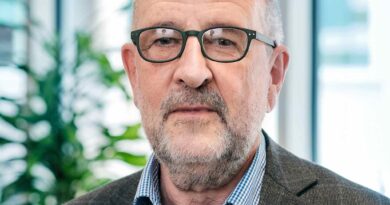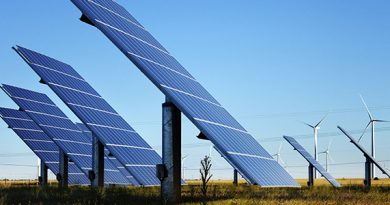Reinvest 2018: ISA -A trillion Dollar Question or Solution
At the ISA session held in the Re-Invest 2018, the panelists during the session talked about issues that developing countries are facing in adopting solar power.

At the International Solar Alliance or ISA session held in the Re-Invest 2018, the panelists during the session talked about issues that developing countries are facing in adopting solar power.
Key Highlights:
-Predictable income needed to function
-Stronger partnerships among countries will make this challenge an opportunity
-Time to look at land and solar not in silos but in terms of jobs, water and sustainable use
-Energy Storage via battery is not yet competitive
-Risk Management and Refinancing Facilities needed in developing Countries
-Build local capacity, invest locally
Officially announced during the UN Climate Change Conference in Paris on November 30, 2015, the ISA is a partnership of solar resource-rich countries. At present, there are 121 countries that have agreed to be ISA members. The focus was on countries lying between the Tropic of Cancer and the Tropic of Capricorn, the ‘solar rich’ belt on Earth. Most of these are from Africa, Southeast Asia and Europe. Sixty-eight countries have signed the ISA framework, of which 44 have ratified their agreement.
The focus has been on the shared ambition to undertake joint efforts required to reduce the cost of finance and the cost of technology, mobilize more than US $ 1000 billion of investments needed by 2030 for massive deployment of solar energy.
Now the baton is with India as founding member, which has already contributed $62 million to the ISA corpus fund, highest among the others. A recent announcement by Indian Prime Minister Modi in which he said that India will soon offer ISA membership proposal to all member countries of the United Nations. He said the renewable energy sector in India offers significant business potential to the tune of $70-80 billion to both domestic and international investors.
During the session the panelists touched upon the vast solar and wind potential so that reliance on dirty and polluting coal.
Among the panellist, Mr Asfaha Beyene,Senior Advisor – Green Climate Fund, pointed out that It is a Challenge and also an opportunity. Shalini Sarin of Philips lightning foundation touched upon supply chain constraints and building capacity and bankable projects and end of life management. The other panelists touched upon issues which are global concerns for renewable Energy sources especially Land, Government reforms and Market.
Jean Pierre Barral who heads the Agence Francaise De development pointed out the need to first identify your need and then opt for Solar solutions. To this Asafa added that Partnership among poor countries hold the key to convert challenge into opportunity. Mr K. S Popli, Chairman of IREDA quipped the needs to focus on: Land, Correct policy and regulations, and lastly mitigate risks. ADB Chief Yong ping Zhai added that Trillion dollar mark is not far as solar has already attracted $216 Billion in 2017. Now the need is to create steady revenue streams despite Risks that are capital and more so Political. Voluntary Contributions to the ISA are not a steady source hence Michael Eckhart, Director of Citigroup’s environmental finances, raised an excellent point that an agency is needed for revenue guarantee not insurance.
In conclusion the issues of steady income, need for government reforms to save investment and assets and need to create an ecosystem of Government and Utilities were discussed at length. However there was no discussion about Green Bonds or Funding methods. But did pushed countries like India and Germany to mentor African countries who are the latest addition in the ISA.




